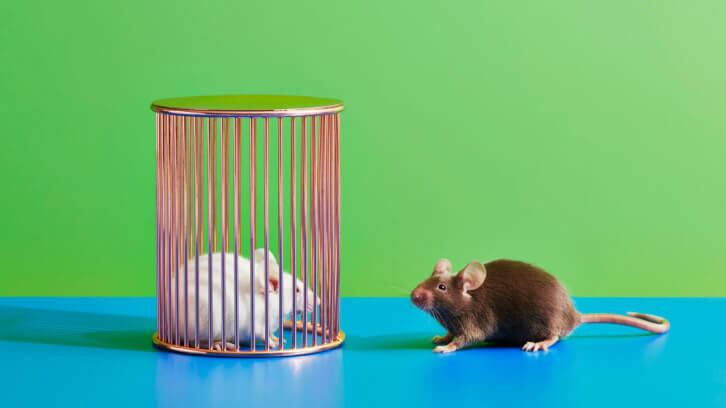Using a collection of eight bacterial strains known as Altered Schaedler Flora, researchers at the University of Virginia School of Medicine were able to isolate the specific role of Lactobacillus intestinalis and Lactobacillus murinus in supporting an immune mediator called interferon gamma (IFN-γ) that regulates the body’s response to stress.
“With these results in hand, we have new tools to optimize the development of probiotics, which should speed up discoveries for novel therapies,” Andrea R. Merchak, Ph.D., co-author on the study, said in a statement. “Most importantly, we can now explore how maintaining a healthy level of Lactobacillus and/or interferon gamma could be investigated to prevent and treat anxiety and depression.”
The research, published in the journal Brain Behavior and Immunity, was supported with funding from the National Institutes of Health, Owens Family Foundation, Miller Family Foundation, UVA Trans University Microbiome Initiative pilot grant and UVA Presidential Fellowship in Neuroscience.
Losing Lactobacillus
The ever-growing body of gut-brain axis research continues to explore the role of gut dysbiosis (disruption of the microbial community) in psychological stress and mood disorders. Lactobacillus, a bacterium found in yogurt and fermented foods like sauerkraut, has emerged as one of the primary bacterial families diminished under these conditions.
“Until now, no one has been able to elucidate the effects of entirely losing Lactobacillus from the gut microbiome selectively,” the researchers wrote. “Our results show that mice raised with a known consortium of gut bacteria that contains L. intestinalis and L. murinus are more resistant to both acute stressor and more chronic mild stressors than mice without Lactobacillus.”
The expansion of findings suggests that mice without Lactobacillus exhibit elevated stress responses and dampened IFNγ levels to initiate anxiety- and depressive-like behaviors.
Study details
For the various stages of the study, the researcher team used four sets of mice: C57BL/6J mice, germ free mice (B6NTac) mice and ASF mice with Lactobacillus (+L) and without Lactobacillus (-L). Stress response, microbiota, blood, RNA and organs were all collected for analysis.
First, the study subjected a set of C57BL/6J mice to a combination of various external stressors every day for three weeks before comparing stress response to that of an unstressed control group.
“As previously reported, stressed mice spent more time inactive than naïve mice in the tail suspension test and had more repetitive behavior in the nestlet shred test,” the researchers reported. “Furthermore, these mice presented with microbiome dysbiosis and lower levels of Lactobacillus as measured by 16S sequencing when compared to naïve mice, replicating our previously published results.”
Then, upon transferring the microbiomes of these stressed mice to a group of germ-free C57BL/6J mice, the researchers also observed the transfer of depressive and anxiety-like behaviors, accompanied by the suppression of systemic IFNγ production, confirming the role of the microbiota in directly modulating behavior.
To explore whether losing Lactobacillus was responsible for the change in IFNγ, the study used two groups of gnobotic mice (born and raised in sterile conditions) colonized with the Altered Schaedler Flora. In one group, L. intestinalis and L. murinus were removed from the community of species. Mice from the two groups were either subjected to an acute stressor or seven days of induced stress followed by behavioral tests and euthanasia.
“Using this microbial community, we found that the Lactobacillus species themselves, and not the disrupted microbial communities, are protective from environmental stressors,” the researchers reported. “Further, we determine that Lactobaccillacea are maintaining homeostatic IFNγ levels which are mediating these behavioral and circuit level responses.”
Future studies will examine whether gut physiology and function are altered in animals receiving a microbiome from stressed animals or lacking Lactobacillus and whether this alteration can contribute to anxiety and depression.
Source: Brain Behavior and Immunity
“Lactobacillus from the Altered Schaedler Flora maintain IFNγ homeostasis to promote behavioral stress resilience”
Source: doi.org/10.1016/j.bbi.2023.11.001
Authors: Andrea R. Merchak et al.

